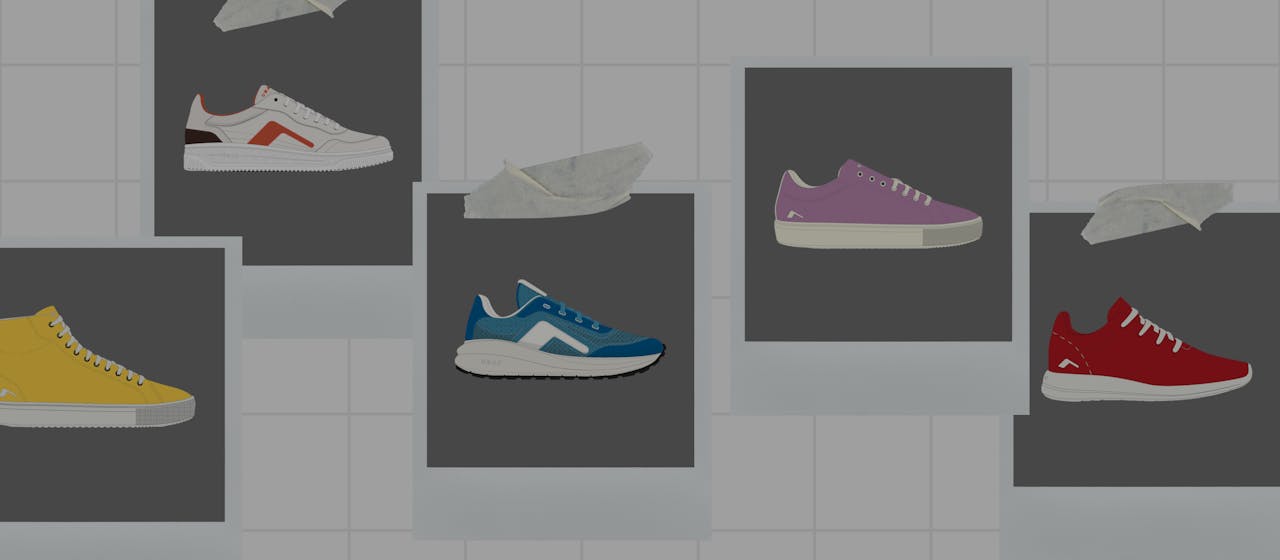
Ubac's co-creation approach
On our website, you can find a "upcoming" page dedicated to the co-creation of our products with our customers. It includes questionnaires for choosing the colours of the trainers, finding out your needs in terms of use, things to improve and things not to change about the models. The majority of respondents are women aged between 36 and 55.
Why ask customers to help us?
Avoiding overstocking and compulsivity
Co-creation allows us to create products that appeal over the long term and in the right proportions.
That's another reason why you have to be careful: when you vote, you have to really think about the colour over the long term if you want the trainer to be really sustainable.
This is particularly true in terms of colour. The visuals that attract the most attention and get the most votes are very colourful, and yet it's the sober, more basic colours that are bought the most. So we need to take the results with a grain of salt.
The results give you a better idea of the quantities you need to order. In this way, we limit the risk of having a huge number of unsold pairs, which are just used to clutter up our warehouse. The aim is also to produce as closely as possible to our customers' needs, to avoid encouraging over-consumption.
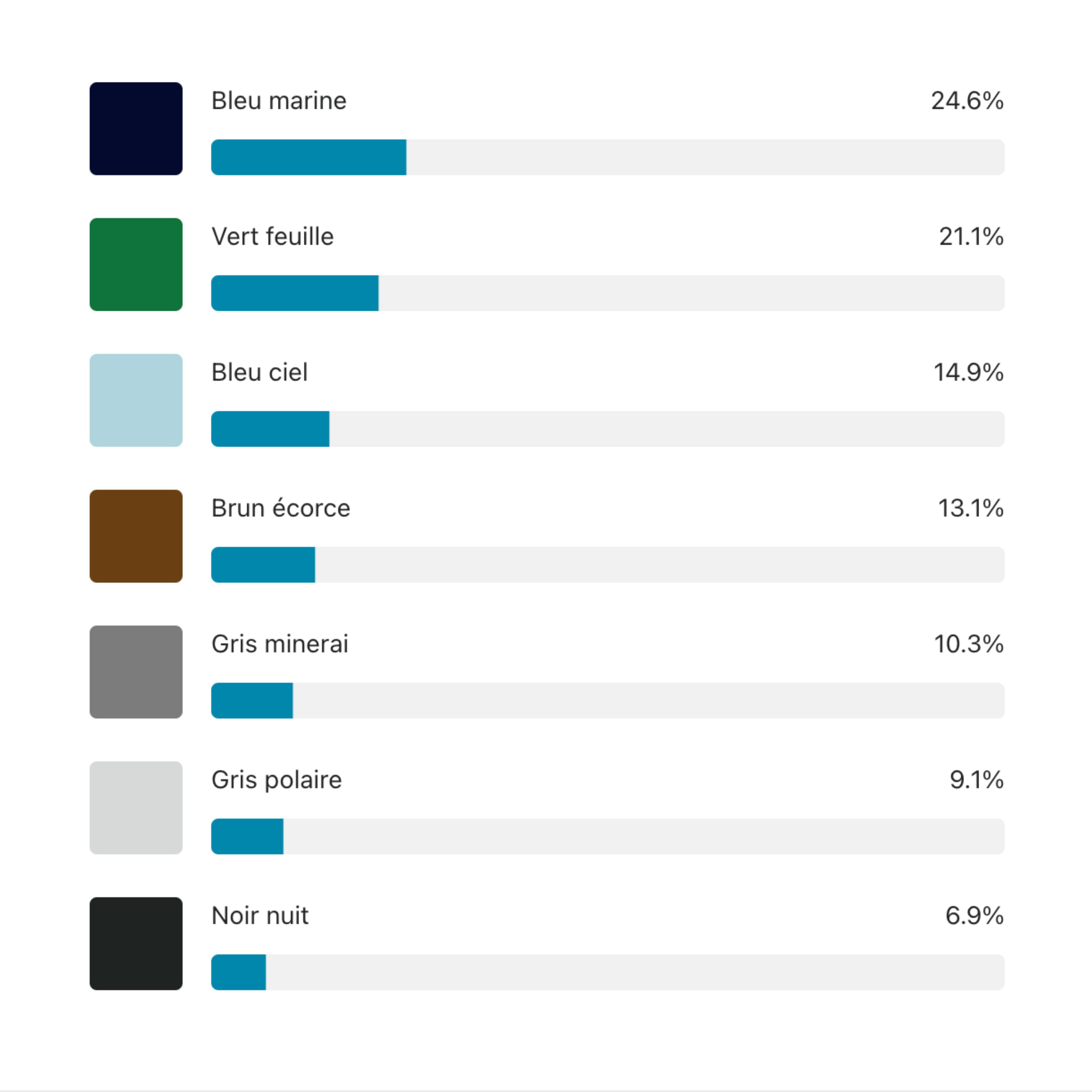
What to keep, what to change, what to create
With the redesign of the brand and the launch of a new range, it seemed obvious and important to us to ask for feedback on Ubac's development. So we had to identify the good from the bad, where possible.
The questionnaires allow us to find out what is important to you and what we should keep. Ubac's DNA lies in natural materials, and we continue to use as many of them as possible by investing in local and endangered textile sectors. Natural materials are also a great asset for trainers: they are thermo-regulating, anti-bacterial and comfortable (among other things).
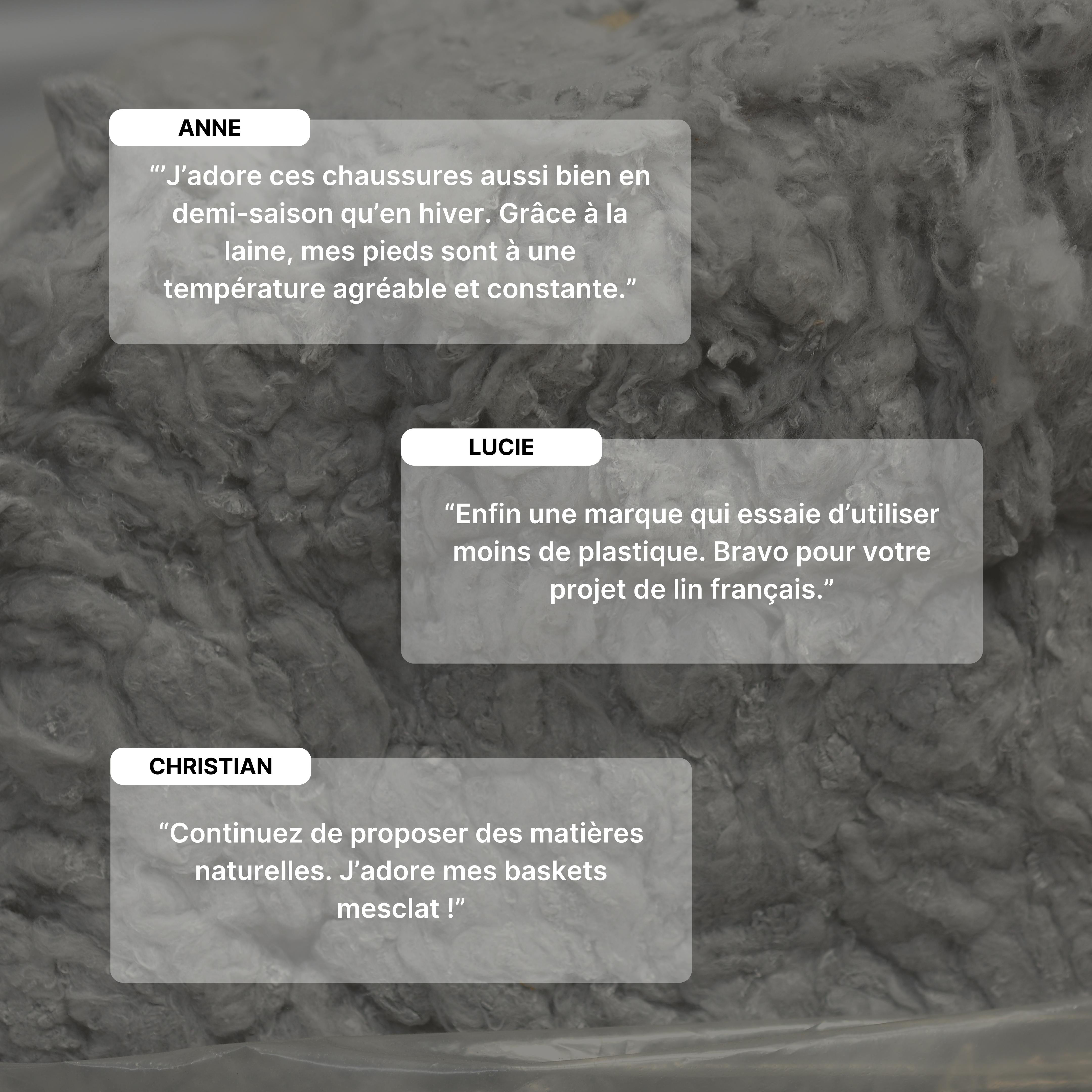
We also wanted to move away from minimalism by offering more elaborate pairs, but following feedback from around 50% of our customers, we also kept our original range with VOLA and TERRA, adding a small embroidered logo.
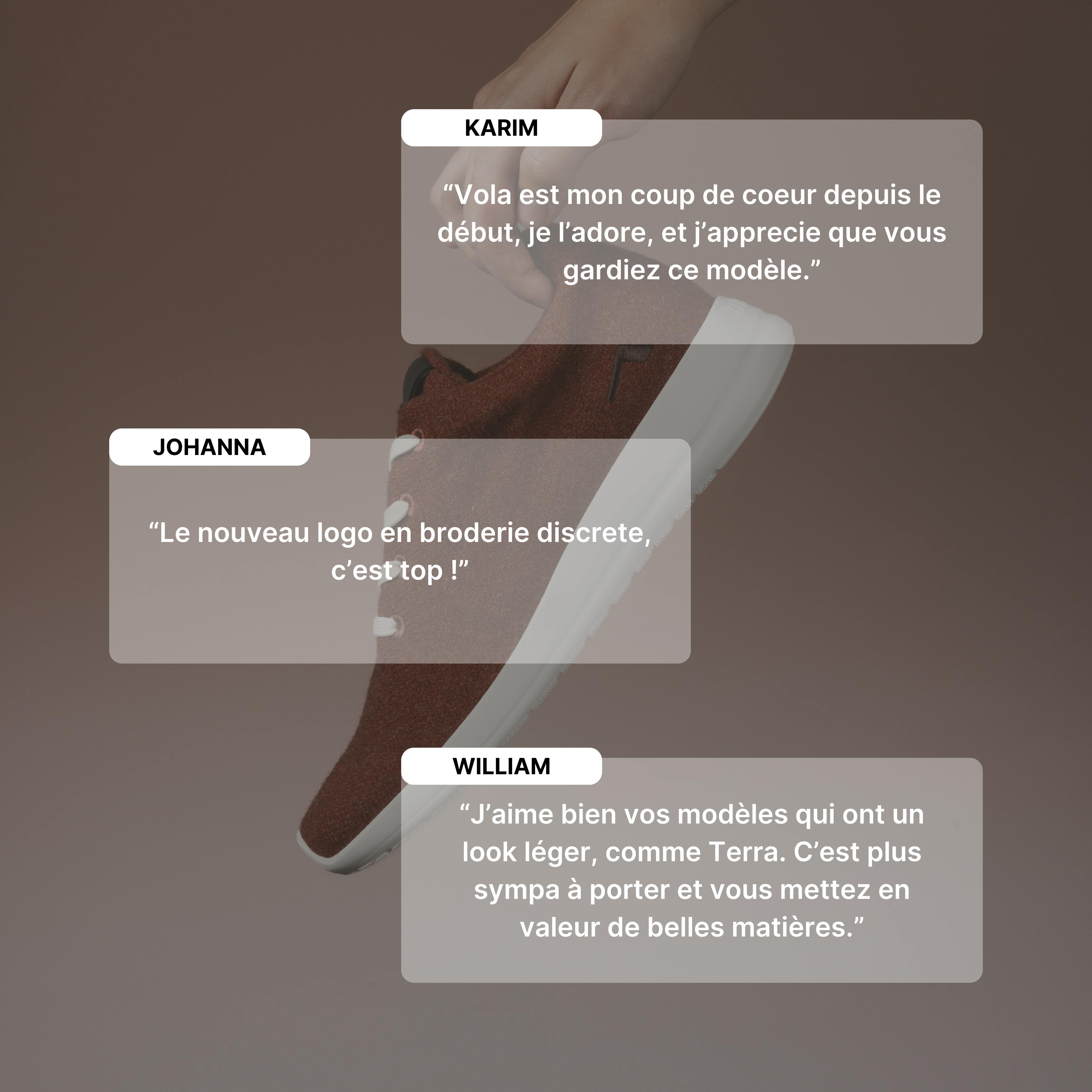
As there are all tastes in nature, the other half of the respondents loved the idea of a new, more advanced range. This is where we realise the complexity of collections and the importance of co-creation.
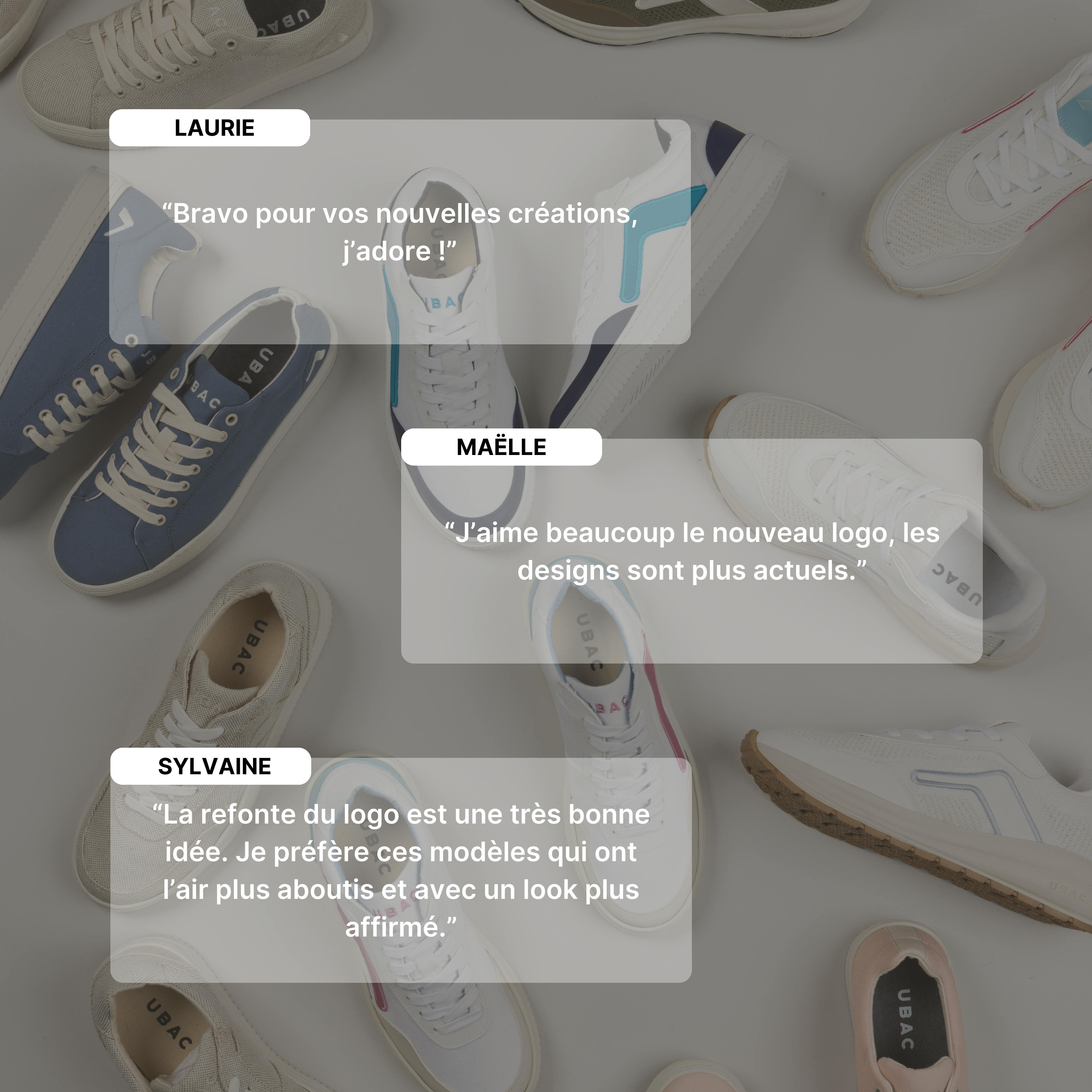
In response to feedback, we've also created AXOLO RSKIN®, a waterproof trainer made from natural and recycled rubber. It's waterproof and has a bamboo lining for comfort, to prevent unpleasant odours and to stay vegan.

Your feedback also helps us to make important decisions. Following your responses, we've also decided to put production of our hemp Kana trainer on hold, despite the fact that the hemp concept is interesting, the design appeals and it's been a best-seller.
The problem with this trainer, ironically, is that the hemp fibre is too strong: in other words, not flexible enough. For some users, this tends to create wear holes in the fabric where friction occurs.
For the moment, we haven't found the most suitable hemp fabric, so we're putting Kana on hold, keeping an eye on innovations for a 100% hemp fabric. In the meantime, we're continuing to invest in the hemp sector with the Mesclat capsule and in French linen with our AXOLO LINEN model.
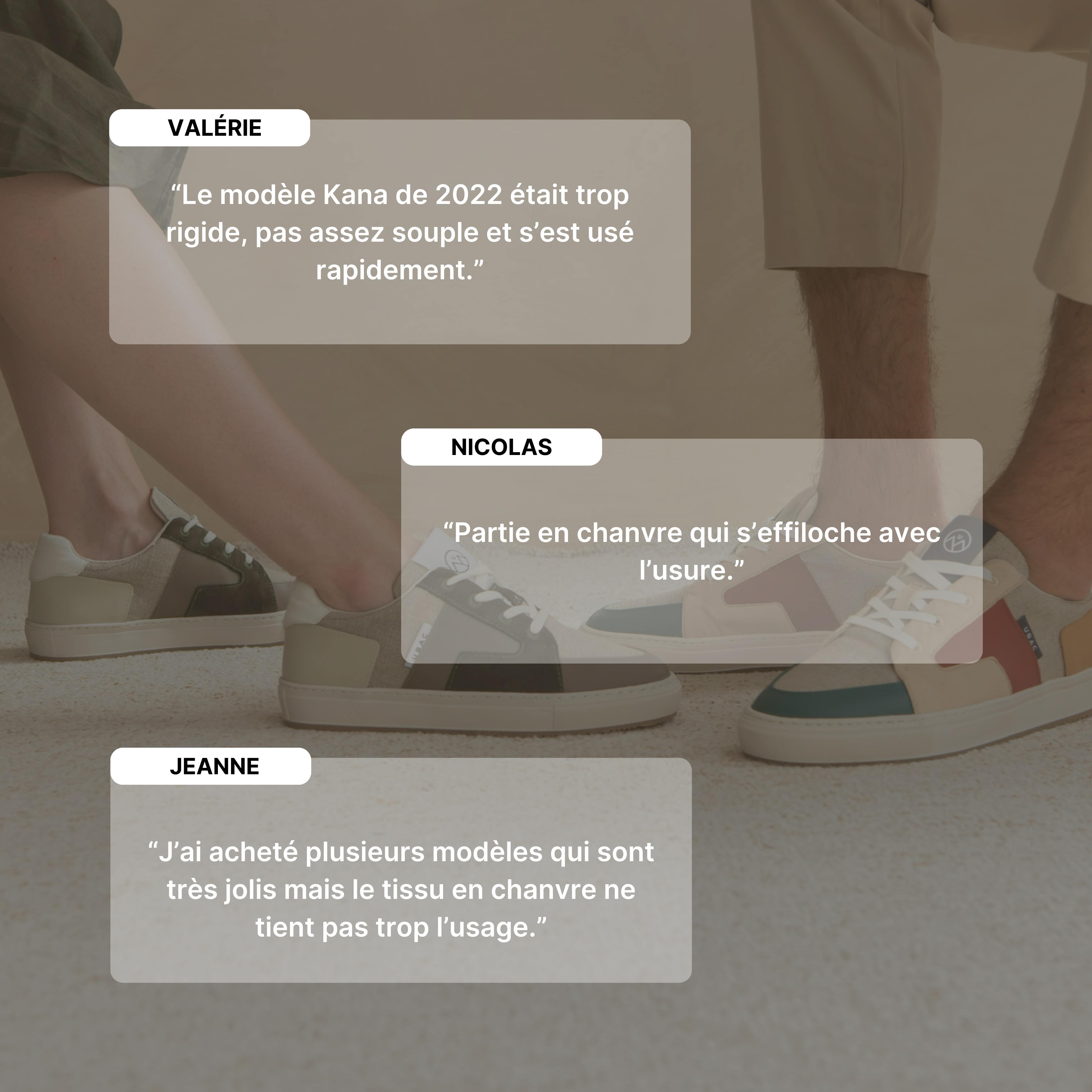
There's always more to do. For example, we have a dilemma with Vola, which is appreciated for its comfort, but also and above all for its lightness. This is one of the most important points for most VOLA wearers.
However, another point that comes up a lot is the sole, which could be grippier. So we're hesitant: at the moment, no sole is as light as the current VOLA sole. If we change it for a grippier sole, VOLA will lose its lightness, which is one of the most important and appreciated criteria of this trainer. This question may come up in a future questionnaire.
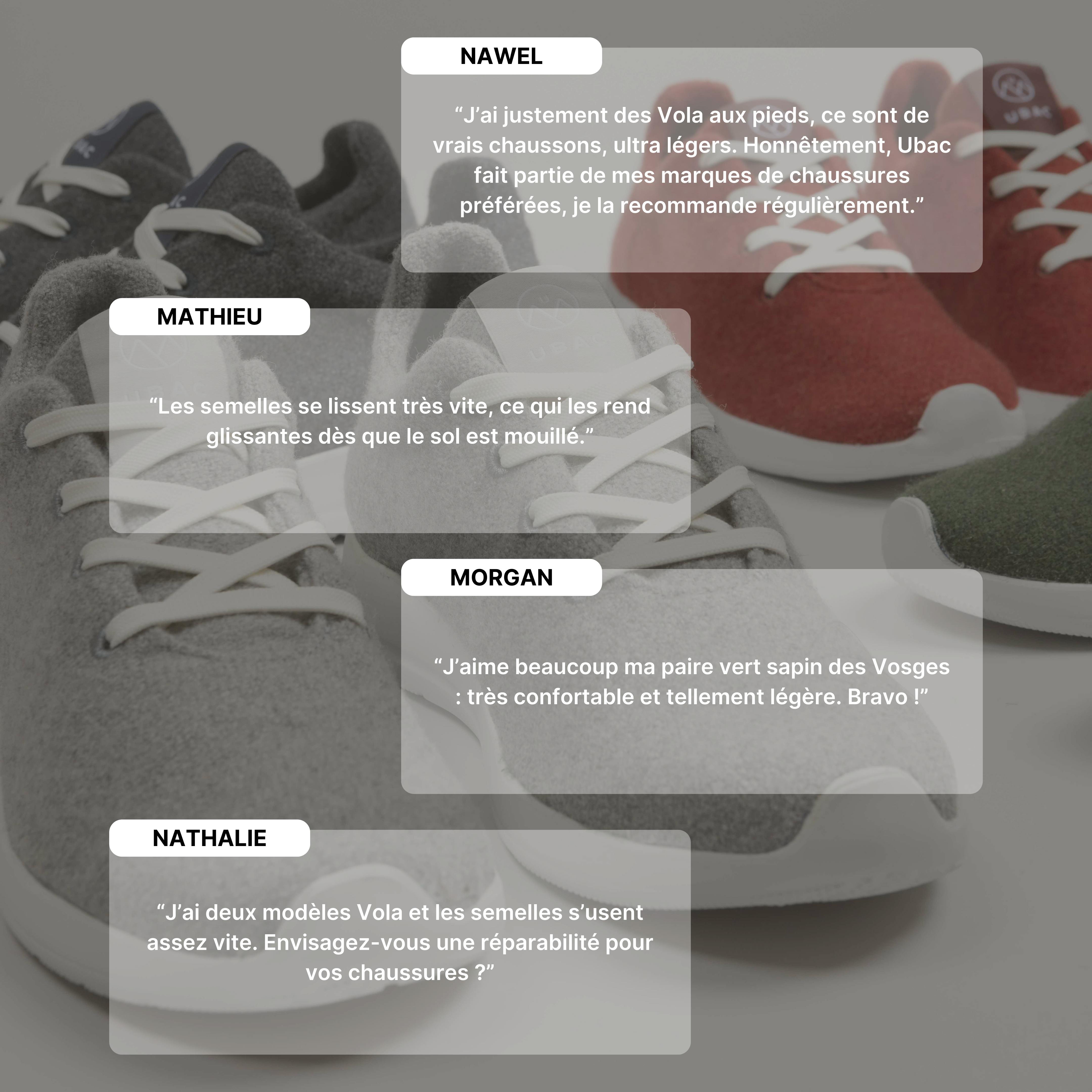
We've also had a repairability project for a long time, and more and more of you are asking us about it. It's underway, but it's going to take time because we need to create a network of shoemakers and train them, order and distribute spare parts, etc...
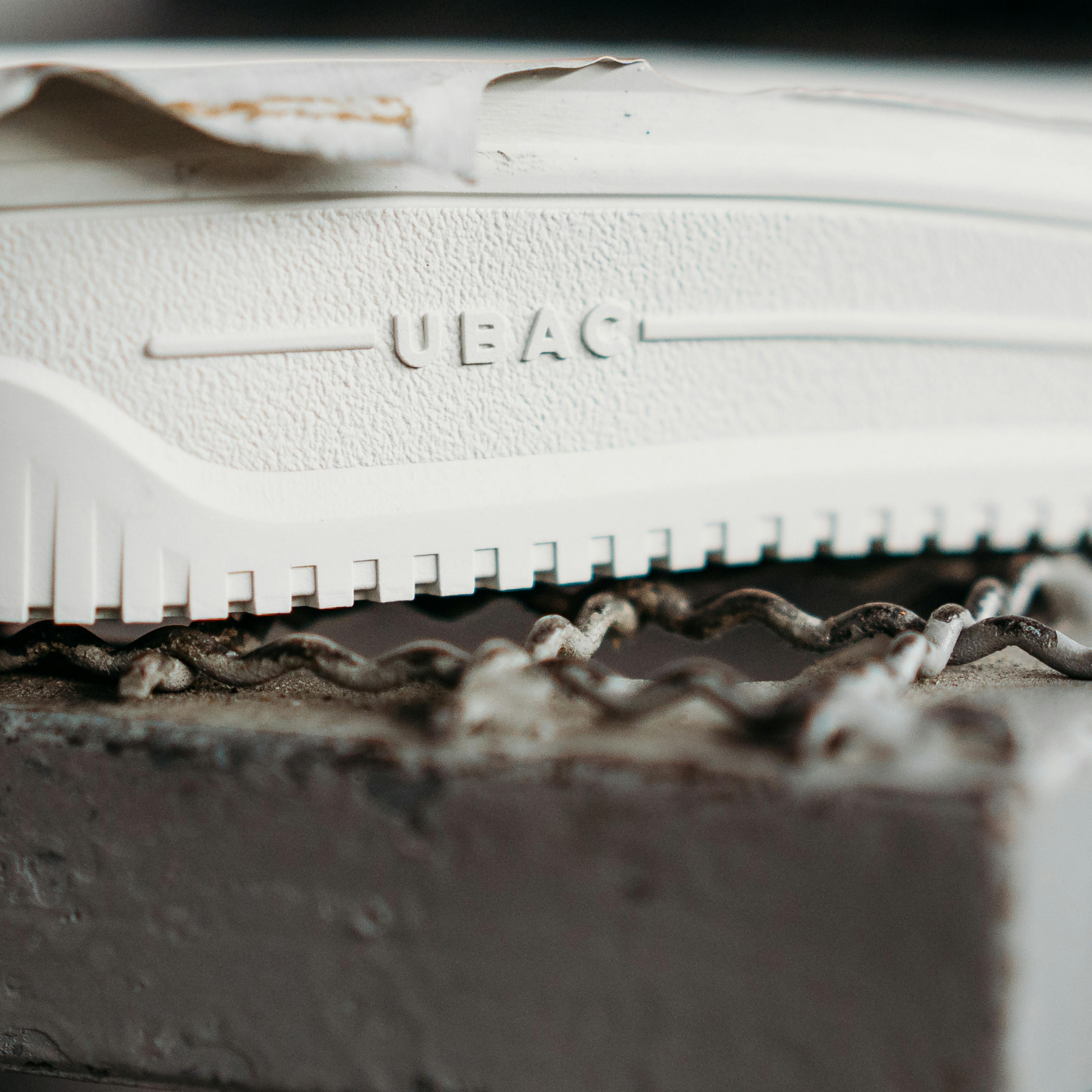
Just like when we managed to take charge of recycling our trainers, we're confident that one day we'll be able to complete this project!
En conclusion
It's not that easy to identify the needs and expectations of customers, because everyone is different. We often end up with two groups of very clear-cut and contradictory opinions. This was particularly the case for the redesign, with some people really liking the new logo and others not.
We also have unique and unusual requests, so here are our special mentions.

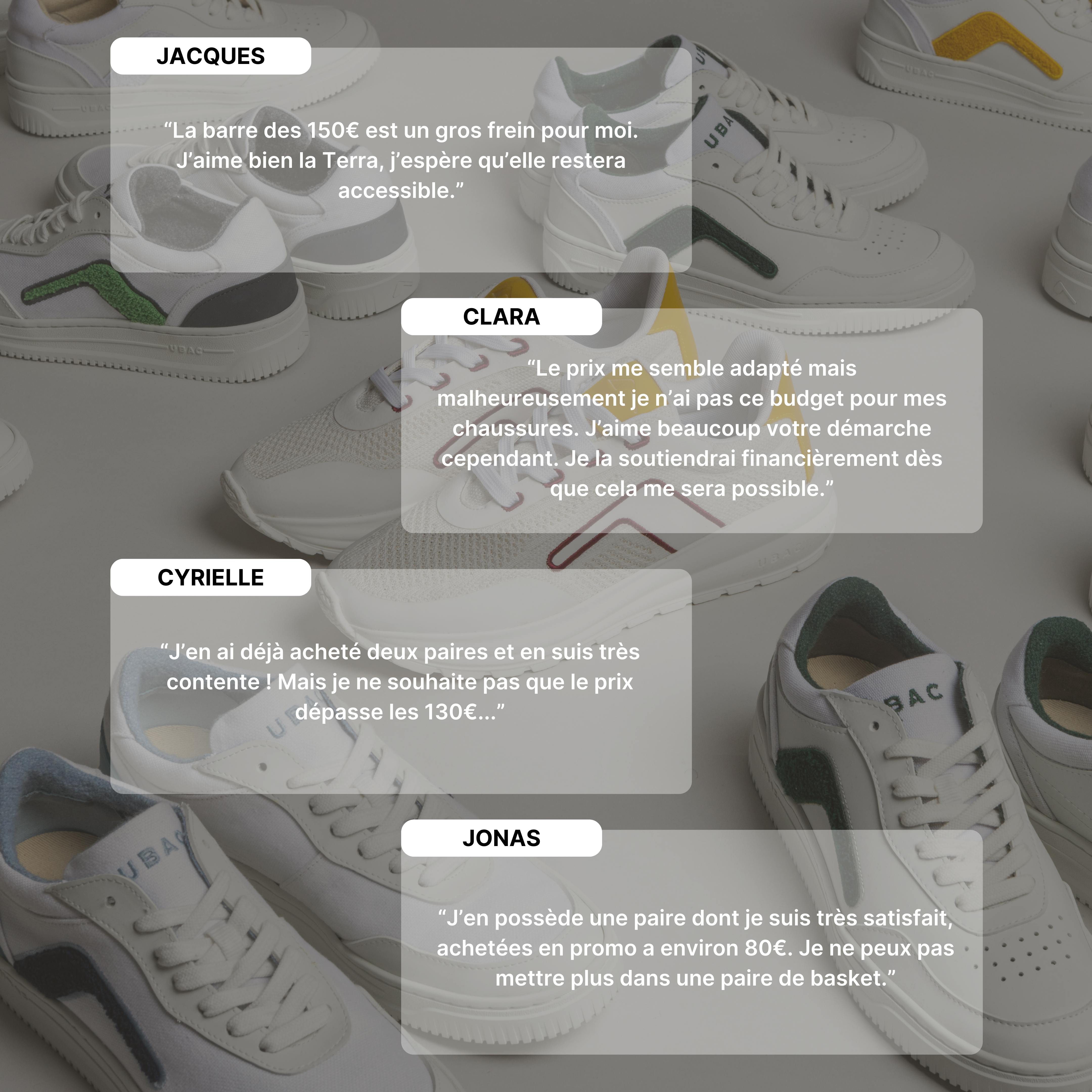
We've also had a lot of comments about the price increases for our models.
As we often explain on our social networks, creating trainers using a sustainable model and in Europe comes at a cost, a price that ensures that neither the workers nor the environment pay.
To sum up, here's what you need to bear in mind:
-The quantities ordered: the smaller the orders, the more expensive the units. And, as mentioned above, we try to keep as close as possible to demand by limiting our production.
-The materials we use: recycled wool, mesclat, French linen, recycled cotton, recycled rubber or plastic-free knit... We use mostly natural, recycled and local materials. With a view to reducing our dependence on petrochemicals, we invest in rare and very small-scale textiles. These fabrics are therefore expensive, but have excellent natural properties.
-Made in Europe: most of our fabrics are created in France, before being assembled in Portugal, in workshops that we know well. Unlike manufacturers who pay a few centimes per pair to an entire factory in Asia, producing in Europe means paying our employees a decent wage.
Here are just a few examples. We haven't even mentioned inflation or fast fashion, which charges the same prices for products with colossal profits. In the interests of transparency, here is a breakdown of the price of an Ubac trainer.
However, we are aware that our products are not accessible to all pockets. That's why we sometimes offer sales or archive sales with reasonable discounts, up to 30% off.
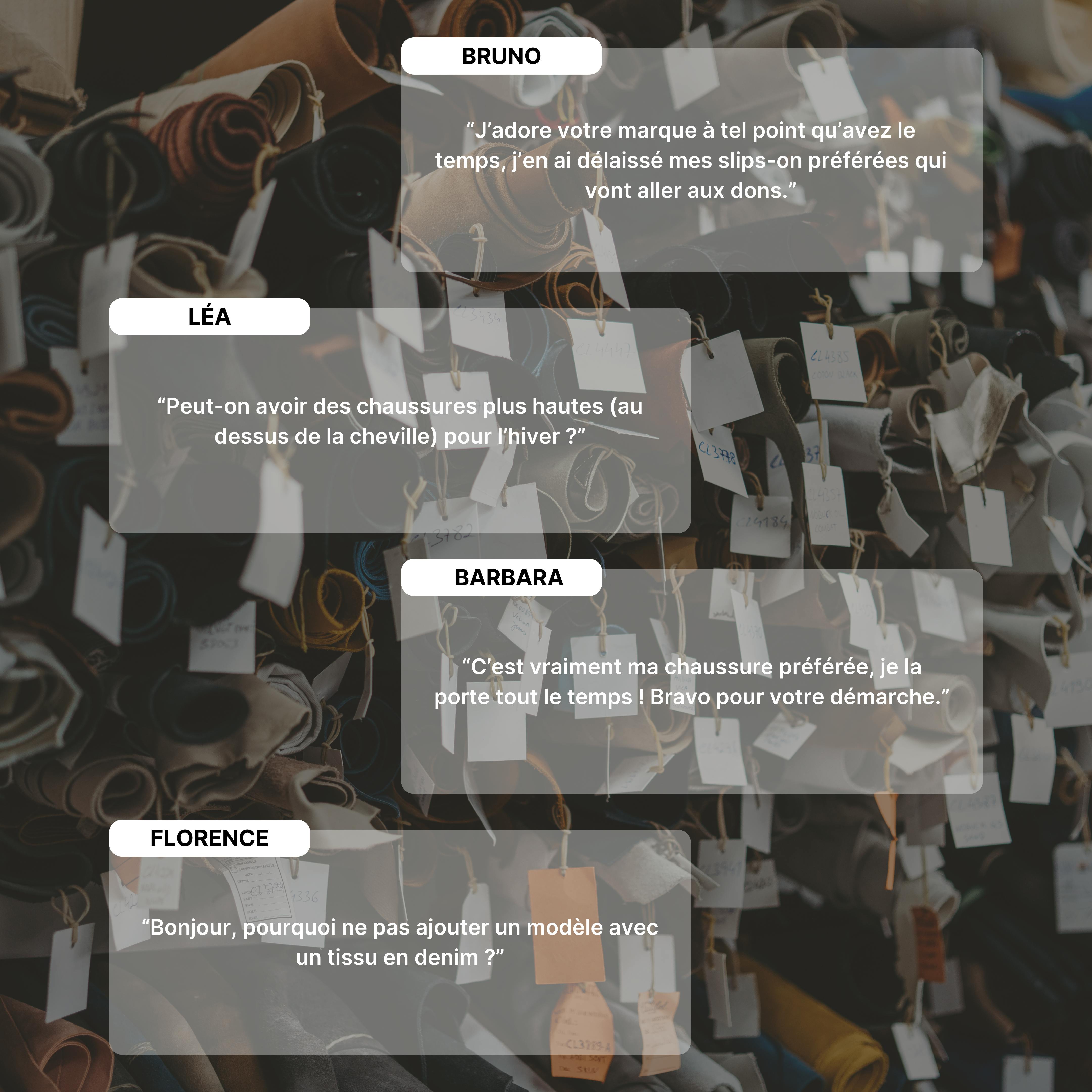
Merci
If you respond to our questionnaires, we thank you. Thanks to you, we can adapt and, together, find the most sustainable model possible.
You can now have your say in the upcoming section for the Winter 2024 collection. Finally, we'd like to thank you again for your words and messages of support, and give you a few hints about the content of the future collection.
